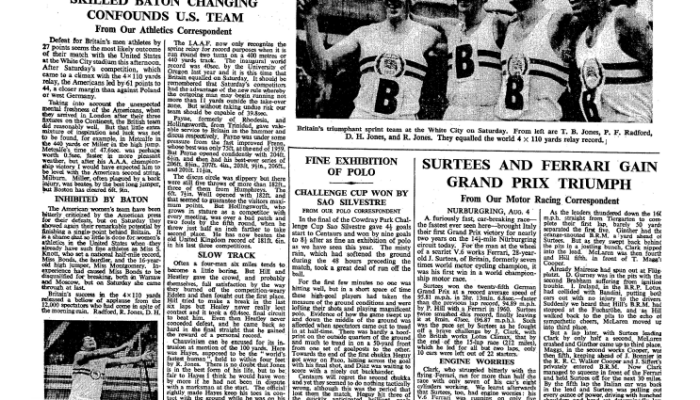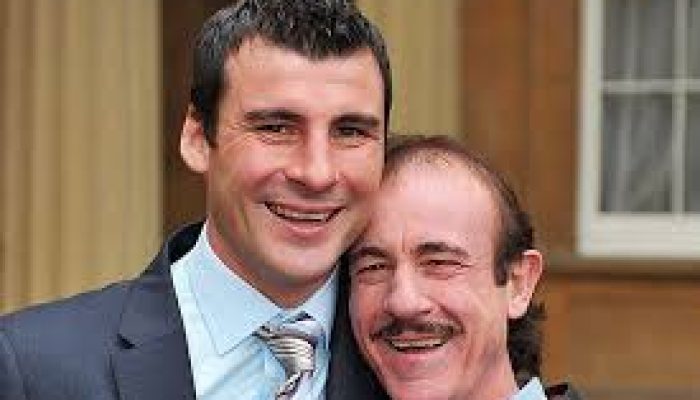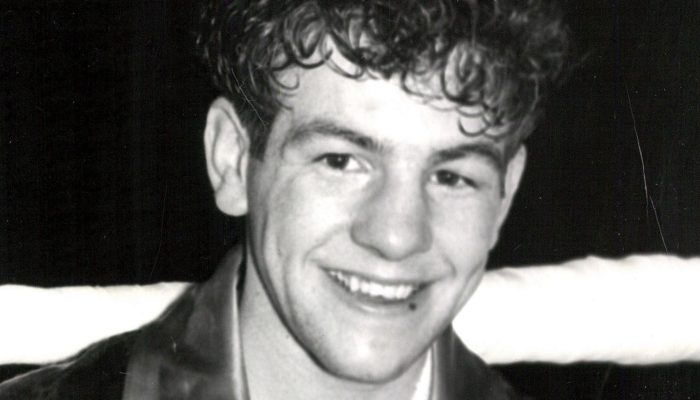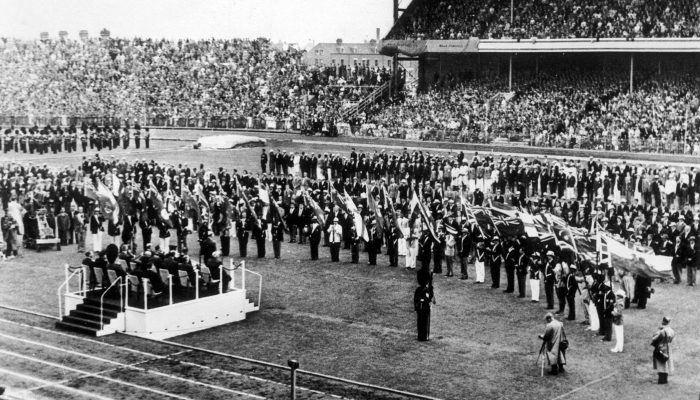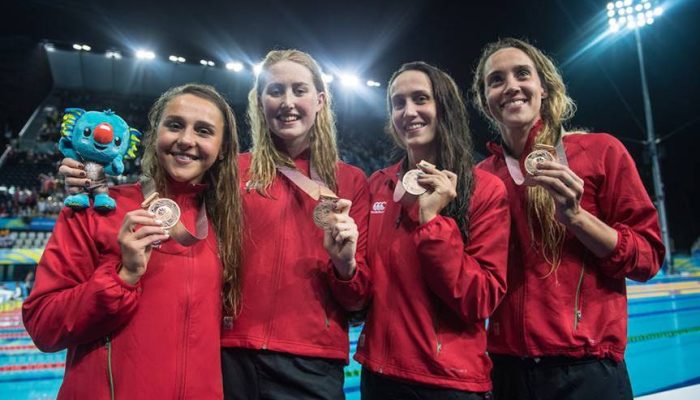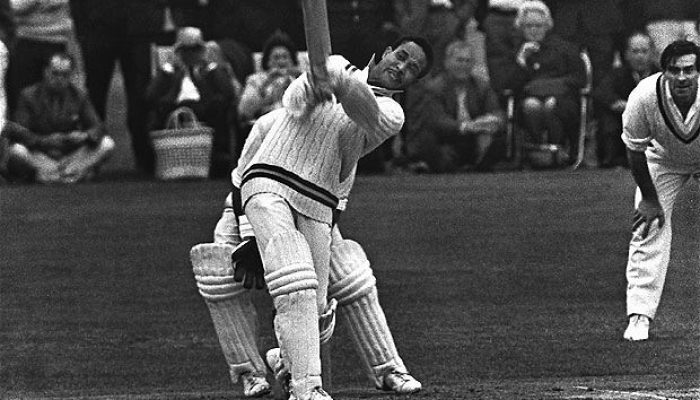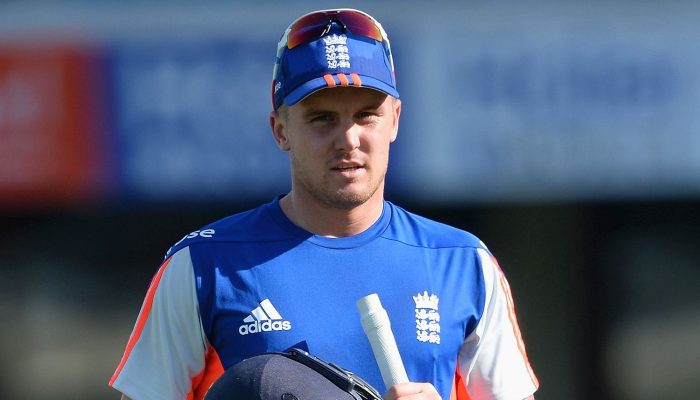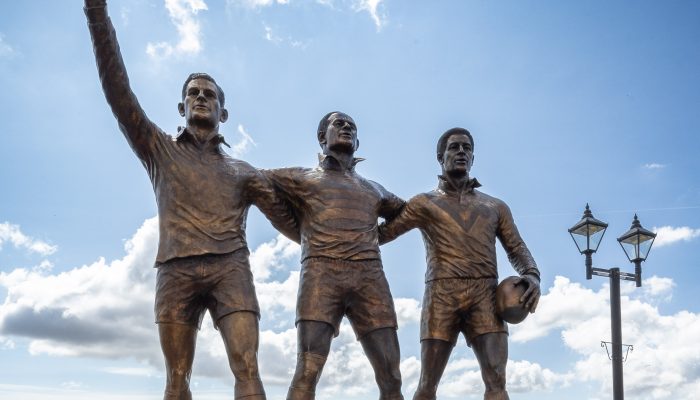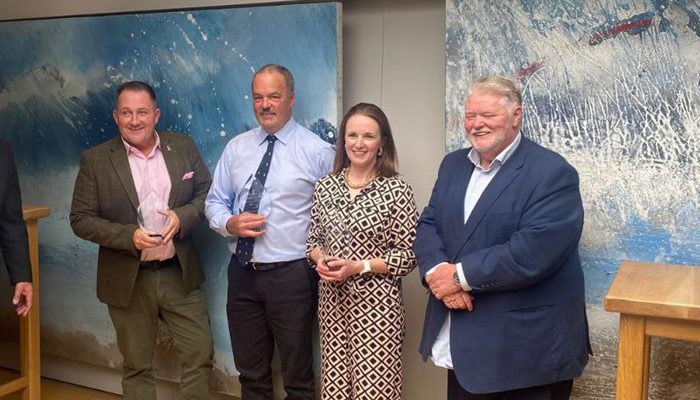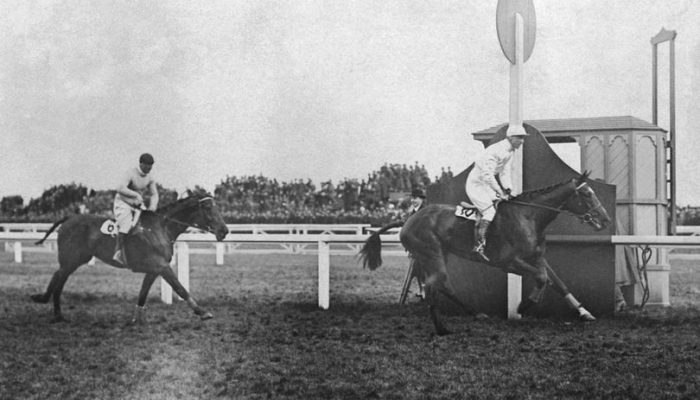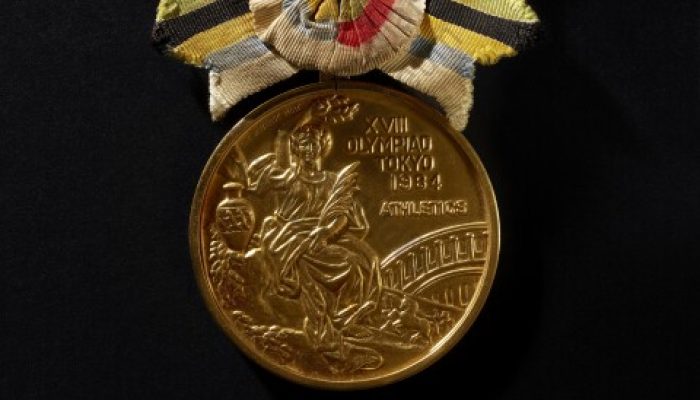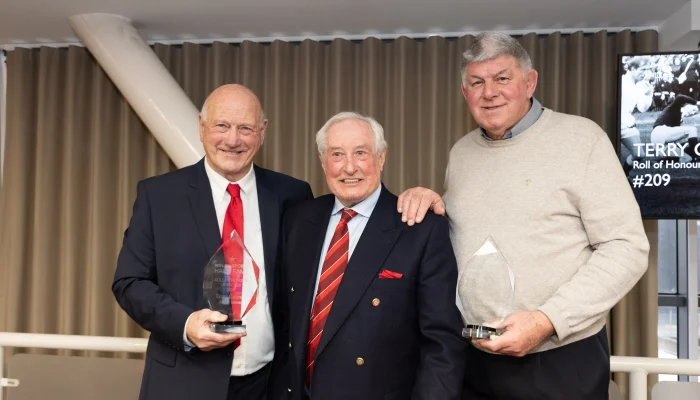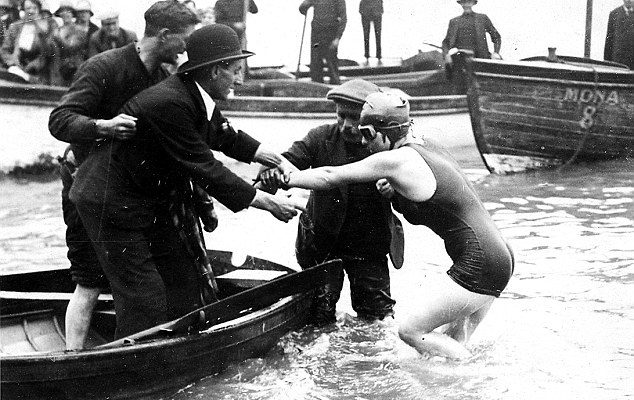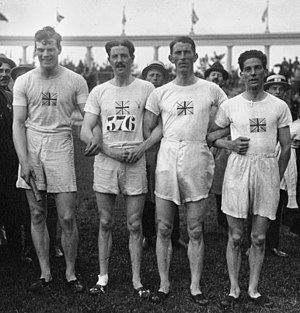
John Ainsworth-Davis
John Ainsworth-Davis was one of two Welsh athletes in the British 4 x 400 metre relay team that struck gold at the 1920 Olympic Games in Antwerp. Although only selected initially as one of two reserves for the relay, he ended up running in the individual event in place of the fellow Welshman Cecil Griffiths, who was struck down by illness. The Aberystwyth-born Ainsworth-Davis – his father was Professor of Biology in the University of Wales and later Principal of the Royal Agricultural College, Cirencester – successfully negotiated three rounds to reach the final, where he finished fifth.
He then ran the third leg in the relay and gave fellow Cambridge University student Guy Butler a three yards advantage on the final leg. Butler managed to take the tape ahead of South Africa and France to take the gold.
On leaving Westminster School, Ainsworth-Davis served both as captain in the Rifle Brigade and, after receiving his wings in Egypt, as a pilot in the Royal Flying Corps. After the war he went up to Christ’s College, Cambridge, and finished third in the 440 yards in the University match in 1920. He also played rugby and tennis for his college. On leaving Cambridge, he studied medicine at St. Bartholomew’s Hospital and supported his family by playing in a band at a fashionable nightclub. He could no longer spare much time for sport and, after finishing fourth in the 440 yards at the 1921 AAA Championships and then second in the United Hospitals Championships in 1923, he retired. He also represented the British Empire against the USA.
He went on to became a highly qualified and much respected doctor and urological surgeon, and served as Secretary of the Royal Society of Medicine. During WW2 he returned to the RAF, where he was appointed head of the surgical division at the RAF Hospital in Cosford.
John Creyghton Ainsworth-Davis (Athlete) Born in Aberystwyth on 23 April, 1895; Died in Stockland, Devon, on 3 January, 1976


